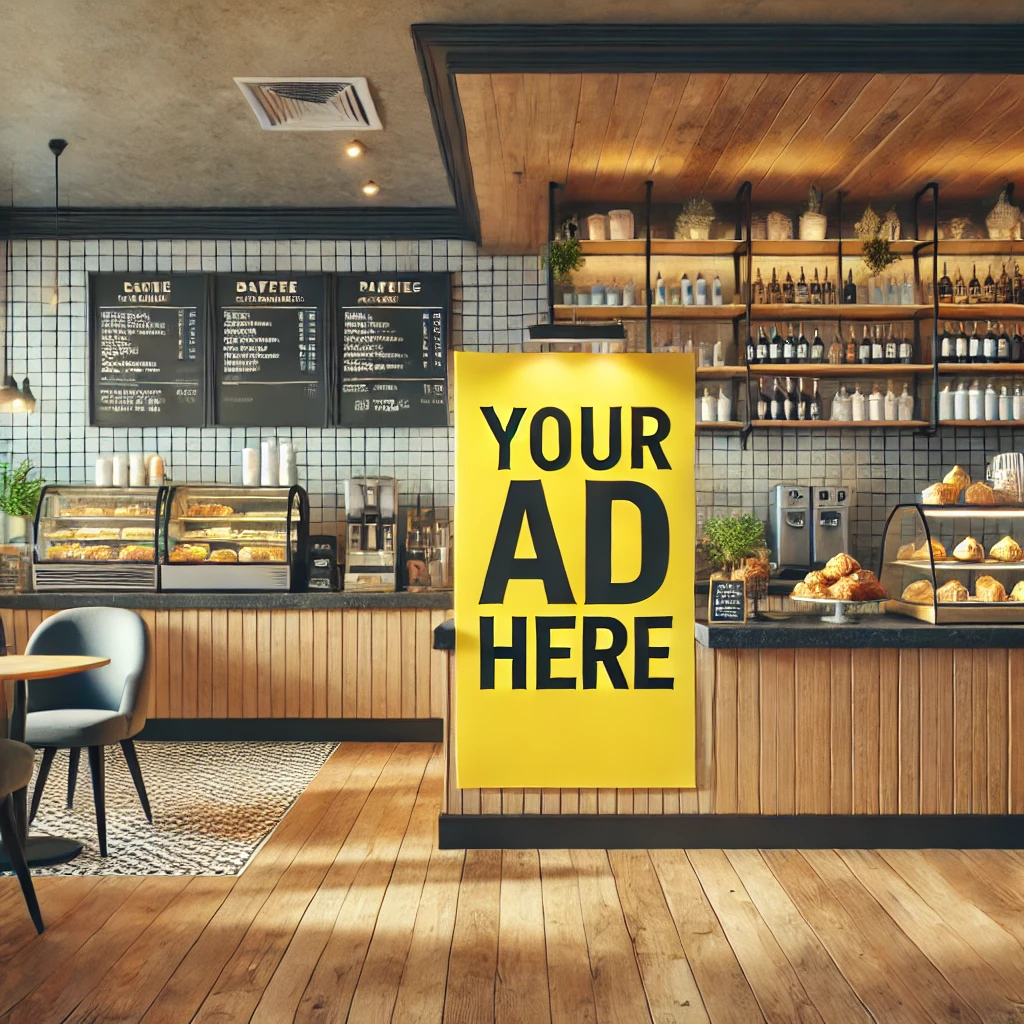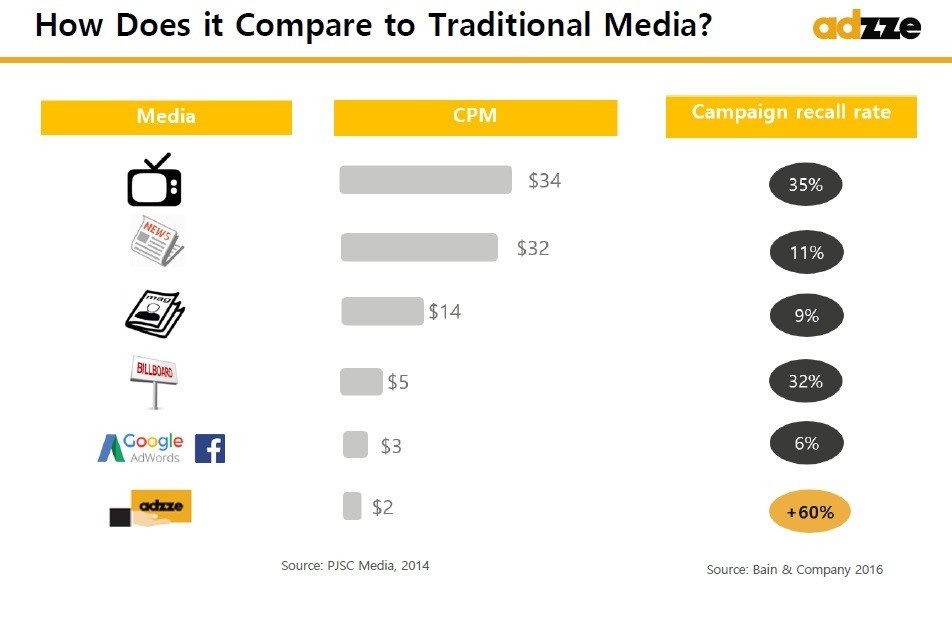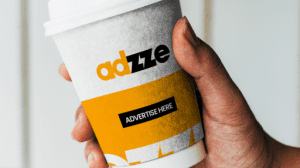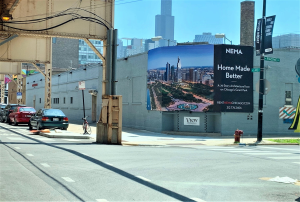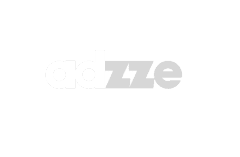In a world where consumers are bombarded with thousands of ads daily, specialty advertising is emerging as a high-impact alternative that breaks through the noise. Unlike traditional media, which often struggles with ad fatigue and digital clutter, specialty advertising leverages unconventional, high-visibility placements—integrating brands into everyday moments. From pharmacy bags to coffee sleeves, sanitizing stations, and laundromat ads, these niche placements ensure unmatched engagement and recall by reaching consumers in spaces where they are naturally more receptive.
This article explores how specialty advertising outperforms traditional media, showcasing real-world examples and a compelling case study that highlights its effectiveness.
Why Traditional Ads Are Losing Effectiveness
As digital advertising continues to saturate the market, consumers are becoming increasingly resistant to traditional ad formats. Here’s why:
1. Digital Fatigue & Ad Blindness
The average person sees up to 10,000 ads daily, making it easy for messages to get ignored.
Banner blindness has led to a decline in display ad effectiveness.
Ad blockers have surged, with over 42% of internet users now actively avoiding digital ads.
2. Diminishing ROI in Traditional Media
TV commercials face challenges with streaming services and DVRs allowing ad-skipping.
Billboards and transit ads are passive, with low audience engagement.
Social media algorithms prioritize organic content over paid ads, reducing visibility.
Specialty advertising cuts through this clutter by integrating brands into consumers’ daily lives—where they least expect it but most engage.
Examples of High-Impact Specialty Advertising Solutions
1. Coffee Sleeves – Capturing Morning Commuters & Professionals
Coffee is an essential part of the daily routine for millions, making coffee sleeves an ideal advertising medium. Whether in bustling urban cafes or drive-thru coffee chains, coffee sleeve ads:
Engage a captive audience for 10-20 minutes per cup.
Reach professionals, students, and commuters in a relaxed, non-intrusive manner.
Provide premium brand association, aligning advertisers with the ritual of starting the day.
Example: A financial services brand targeted young professionals with mortgage loan promotions on coffee sleeves at city-based cafes, resulting in a 30% lift in inquiries.
2. Hotel Key Cards – Targeting Conference Attendees with Precision
Business travelers and conference attendees frequently interact with hotel key cards, making them an underutilized yet highly effective ad space. These ads:
Ensure repeated exposure, as guests use key cards multiple times per day.
Target affluent, business-oriented consumers attending industry events.
Offer exclusive promotions, such as discounts on local services or event tie-ins.
Example: A luxury watch brand advertised on hotel key cards at a major industry conference, driving a 25% increase in foot traffic to their event booth.
3. Pharmacy Bags & Sanitizing Stations – Engaging Healthcare Consumers
With healthcare being a priority for all demographics, pharmacy bags and hand sanitizing stations provide unique access to consumers when they are focused on wellness and self-care. Benefits include:
High trust levels, as ads appear in health-related environments.
Extended exposure, as pharmacy bags are taken home and reused.
Tactile engagement, reinforcing brand messages.
Example: A flu vaccine awareness campaign placed ads on pharmacy bags, resulting in a 40% increase in scheduled vaccinations at participating pharmacies.
4. Laundromats & Convenience Store Posters – Reaching Blue-Collar Workers
Laundromats and convenience stores cater to a broad audience, especially working-class and blue-collar consumers who spend significant time waiting in these locations. Specialty advertising here:
Captures undivided attention, as customers wait for their laundry cycles.
Drives local engagement, ideal for brands promoting everyday essentials.
Works well for service-based industries, such as financial services or local retailers.
Example: A payday loan company used laundromat posters to promote short-term loans, generating a 15% increase in applications within targeted zip codes.
How Specialty Advertising Increases Brand Recall & ROI
The success of specialty advertising is driven by its ability to integrate seamlessly into daily experiences. Here’s why it works:
1. Uninterrupted, High-Engagement Advertising
Unlike social media or TV ads, specialty ads don’t compete for attention.
Consumers interact with these placements organically, reducing resistance.
2. Hyper-Targeted Messaging
Ads are strategically placed based on demographics and behavioral insights.
Ideal for brands seeking precision targeting without excessive ad spend.
3. Extended Brand Exposure
Ads on pharmacy bags, hotel key cards, and coffee sleeves stay with consumers for hours or even days.
Higher retention rates lead to increased brand recall.
Case Study: A Specialty Advertising Success Story
Brand: A National Health Insurance Provider
Challenge: Increase sign-ups during the open enrollment period while competing against traditional TV and online ads.
Strategy: Placed ads on pharmacy bags and hand sanitizing stations at key retail pharmacy locations.
Included QR codes leading to an easy online sign-up process.
Results: 30% increase in website visits from targeted locations.
Higher engagement rate than digital ads, with consumers spending an average of 45 seconds interacting with the messaging.
Significant cost savings, as pharmacy bag ads cost 50% less per impression than traditional print media.

